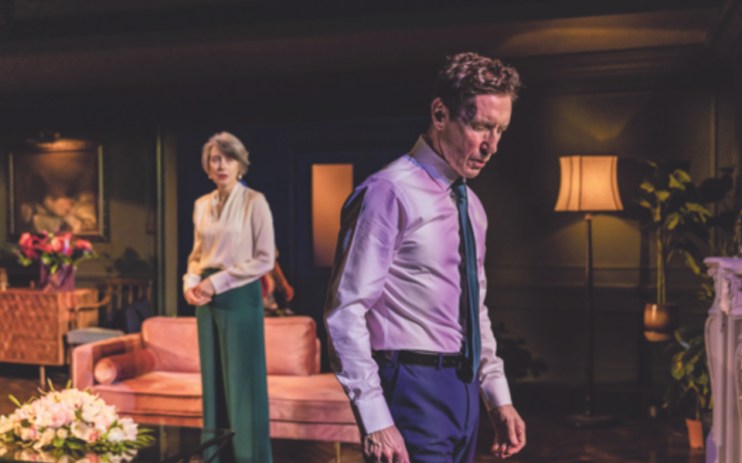The Forest at Hampstead Theatre is a fascinating puzzle-box

Were it not for the involvement of award-winning French playwright, novelist and film director Florian Zeller, The Forest might have flown under the radar as a stylish but straightforward psycho-drama. That would have been a shame, because this is a play more delicate and layered than its elevator pitch might otherwise suggest.
It first presents itself as a psychological puzzle-box, a riddle to be unpicked through repeated viewings of the same tragic events. But behind that lies another, more surreal world, where things never make sense, a place where the play’s myriad dopplegangers and tulpas exist in their own realities rather than as mere keys to unlock the central mystery.
It follows a celebrated doctor, Man 1, whose affair with an unstable young woman threatens to consume his marriage and career. We see him going about his life, wracked with guilt and compensating with foppish bravado.
Then the lights go down, and above the stage we find a second stage, a pocket reality in which another man, Man 2, is living out the affair, one literally hanging over the other.
The two can be read as different aspects of the same fractured psyche, the doctor unable to process the affair and some other terrible event. But this feels like the least interesting analysis, and one that’s thrown into doubt when the two men come into horrifying contact with one-another (this scene brought to mind the famous moment behind the diner in David Lynch’s Mulholland Drive, in which a character meets the presence that’s haunted his dreams).
The same scenes – a drinks party, a meeting with a friend, post-coital pillow talk – are repeated again and again, each time playing out slightly differently.
Events also ripple from one reality to the next: the doctor’s daughter has an adulterous relationship that not only reflects that of the doctor, but is, I think, a literal aspect of it. Likewise certain objects – flowers, a note – are able to pass from one reality to the next, symbols given some Jungian power through their sheer weight of meaning.
There are flickers of Pinter to be found, especially in the way language begins to break down as the events are repeated, the doctor perhaps aware, on some level, that these scenes have already taken place.
There also flaws that are a little hard to swallow, not least that all the female roles are rather cliched and underwritten, and the nagging sense that, while excellently translated into English, these remain French people’s words coming out of English people’s mouths; the frank discussion of affairs, for instance, doesn’t quite suit the English bluster with which they’re delivered.
But this is a slick, stylish and wonderfully textured play by a director who has built a career exploring troubled minds. Unlikely to get a film adaptation à la The Father, you’d better get down to the Hampstead Theatre.
